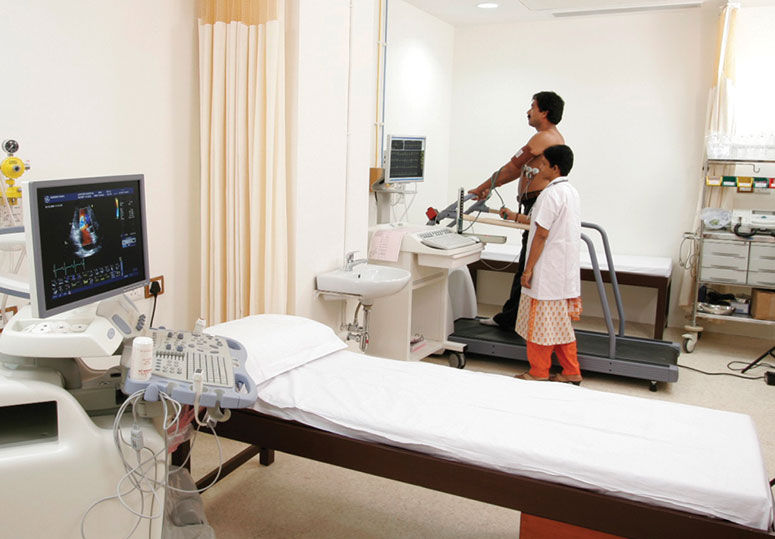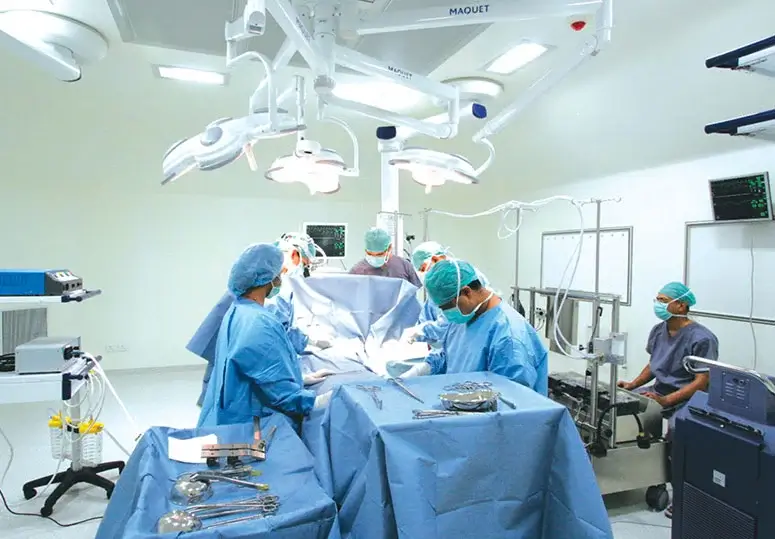Breast Care Center in Pune
Center for Breast Care
We have an all-women's team of passionate professionals who can assist you with any breast-related concern for your comfort. We seek to provide the best breast cancer care as well as therapy for benign breast problems, cosmetic breast problems, and preventive breast care.
Team
Looking for the Breast Care Center in Pune
1.1 Why Healthy Women Need Preventive Care
In India, breast cancer affects more women than any other type of cancer. According to estimates, 1 in 25 Indian women could end up with breast cancer. Healthy women without a family history can get breast cancer, and in the early stages, there are no symptoms. However, breast cancer is treatable if detected early and properly managed with contemporary oncological therapies. Early breast cancer detection allows for prompt diagnosis and helps save lives. Additionally, it makes treatments more practical and minimally invasive.
1.2 Regular Breast Exams all women should undergo
Annual Clinical exam:Once a year, every woman over the age of 30 should have her breasts examined by a physician. If the Clinical Breast Exam reveals an abnormality, our breast surgeons will direct you to the most pertinent follow-up tests.
Annual Mammography:All women over the age of 40 should undergo a "Screening Mammography" once a year. The centre for mammography at Jupiter Hospital provides advanced breast imaging using digital mammography with tomosynthesis. To avoid mastectomy, the technology enables detection of very minute cancers and reduces false positives.
Monthly Breast Self-Exams:All women over the age of 20 should perform monthly self-examinations of their breasts. Learn the proper breast self-examination technique from our experts. Do not panic if you find a lump or other abnormality during a breast self-exam; the majority of breast lumps are not cancerous. However, symptoms of common benign breast conditions can overlap with those of breast cancer; therefore, you should always consult a specialist. Schedule a breast examination with one of our specialists, who will guide you through the correct diagnostic procedures.
1.3 Genetic Testing for Familial risk
Genetic mutations inherited from the mother or father account for 5–10% of breast malignancies. The BRCA1 and BRCA2 genes account for most inherited genetic defects. If you have close relatives with breast cancer, ovarian cancer, prostate cancer, or other types of cancer, you should schedule a genetic counselling appointment. During your genetic counselling session, our specialists will evaluate the need for genetic testing, clarify the testing procedure, and review your detailed family history.
We believe that a precise and certain diagnosis is essential for the successful treatment of any breast condition. All breast complaints at Jupiter Hospital are evaluated by qualified and experienced breast health specialists in breast radiology, breast pathology, breast surgery, and breast cosmetology. Our specialists are aided by cutting-edge diagnostic technology, such as digital mammography with tomosynthesis (3-D mammography), breast ultrasound with elastography, and image-guided needle biopsy, allowing you to be confident in the diagnosis prior to treatment.
At the Breast Care Centre of Jupiter Hospital, we provide a complete and accurate diagnosis for complaints such as
- Breast pain
- Breast lumps
- Nipple discharge
- Breast infections
- Breast size concerns
- Male Breast problems
- Lactational Breast Problems
- Other undiagnosed breast problems
3.1 Breast Cysts:
Breast cysts are a common condition in the breast. A breast cyst can be classified as simple, difficult, or complex. Simple cysts frequently do not require treatment. An ultrasound-guided aspiration may be required for a complicated or complex cyst. Minimally invasive outpatient methods can typically prevent surgery for breast cysts.
3.2 Breast Fibroadenomas:
A benign breast lump is commonly caused by a fibroadenoma. Small fibroadenomas rarely require treatment and can be watched. However, if they cause pain, discomfort, or rapid growth, our professionals will remove them using minimally invasive and scar-free treatments.
A triple test is frequently required to ensure that any breast lump is not malignant.
3.3 Granulomatous Mastitis:
Idiopathic Granulomatous Mastitis (IGM), a common cause of chronic breast abscesses and inflammation, can be misdiagnosed with breast tuberculosis (TB) and is frequently treated with repeated surgery. We specialised in IGM medical therapies that use minimally invasive ways to avoid surgery and scarring.
3.4 Breast Papilloma:
Intraductal Papilloma is a tumour that develops in the lining of the milk ducts and causes aberrant nipple discharge. These growths are frequently missed by mammography and ultrasonography. When treating this problem, we use minimally invasive microdochectomy to selectively remove the affected duct while preserving normal ducts.
3.5 Lactational Breast Issues:
Cracked nipples, galactoceles, lactational mastitis, and breast abscesses are common complications in breast-feeding moms, and prompt treatment of these disorders is critical to the mother's and baby's health. It is particularly critical to separate these issues from a more serious and uncommon illness known as pregnancy-associated breast cancer.
Our breast surgeons and plastic surgeons provide combined consultations for breast size and contour concerns at a weekly breast-plastic surgery outpatient clinic. We are experts in
- Breast augmentation with breast implants to increase breast size
- Fat grafting to increase breast size and correct deformities
- Breast lift or mastopexy for sagging breasts
- Breast reduction surgeries for large breast size causing back and neck pain
- Correction of asymmetry in breast size and shape
- Correction of inverted nipples
- Removal of accessory breast tissue in armpit
- Minimally invasive surgery for gynecomastia
- Breast reconstruction after mastectomy
At the Jupiter Hospitals Cancer Institute, we provide comprehensive breast cancer treatment. We are proud of our state-of-the-art technology, competent oncology nursing care, and multidisciplinary approach to cancer care.
5.1 Accurate Breast Cancer Diagnostics:
Each breast cancer is unique, and determining the subtype and stage is critical before developing a treatment plan. Breast cancer is diagnosed via imaging such as mammography and ultrasound performed in our breast imaging department, followed by a core-needle biopsy performed at the breast clinic. Our breast pathology experts will then obtain Immunohistochemistry (IHC) investigations to detect the cancer subtype (ER/ PR/ HER2 status). PET-CT procedures are available in-house for determining the stage of cancer.
5.2 Multidisciplinary Tumour Board:
In a weekly tumour-board meeting, our team of Breast Surgeons, Surgical Oncologists, Radiation Oncologists, Medical Oncologists, Plastic Surgeons, Palliative Care Specialists, Radiologists, and Onco-Pathologists review our breast cancer cases. After numerous doctors have thoroughly reviewed the patient records, a personalised treatment plan is developed. Patients gain from the expertise of different professionals as well as their exchange of perspectives. Surgery, chemotherapy, radiation therapy, targeted therapy, endocrine therapy, and sometimes immunotherapy may be part of your breast cancer treatment plan. Not every patient requires all of these treatments, and each patient's treatment regimen is unique.
5.3 State-of the art Breast Cancer Surgery:
Our Breast Surgical Oncologists specialise in advanced breast surgical technique.
Breast Conservation surgery: In most situations, breast cancer can be managed without the removal of the breast. Intraoperative ultrasonography, specimen mammography, and intraoperative frozen section improve the accuracy of full tumour removal and reduce the likelihood of re-operation in cancer surgery.
Oncoplastic Breast Surgery
During cancer surgery, oncoplastic methods help to preserve the breast's aesthetic appearance.
Breast cancer is removed while preserving the breast's shape and cosmetic appearance, minimising deformity, and reducing scarring.
Mastectomy with Breast Reconstruction
Breast Reconstruction after Mastectomy
In some cases, full breast removal is required to treat breast cancer. We offer a nipple and skin sparing mastectomy with rapid reconstruction to replace the breast tissue with an implant or tissue flap for such patients.Our breast surgeons and plastic surgeons collaborate to execute advanced reconstruction surgeries, where the breast reconstruction is performed concurrently with the cancer surgery.We also offer delayed breast reconstruction to individuals who have previously had mastectomy without reconstruction.
Lymphedema Prevention
Lymph node surgery is an important part of breast cancer surgery that might be worsened by arm swelling or lymphedema. We provide sentinel lymph node biopsy, which is a minimally invasive procedure that eliminates the need for axillary lymph node dissection. Other procedures used to reduce the incidence of lymphedema in lymph node surgery include axillary reverse mapping and lympho-vascular anastomoses.
Enhanced Recovery after Breast Surgery
Improved Recovery after Breast Surgery
Minimizing post-surgical pain, nausea, and vomiting, as well as early mobilization, all contribute to a shorter hospital stay and less complications from breast surgery. The majority of breast cancer patients are released home within 24 hours of their operation.
Treatment of Rare and Unusual Breast Cancers
Our breast cancer specialists address rare instances such as phyllodes tumors, breast lymphomas, occult breast carcinomas, male breast cancers, pregnancy-associated breast cancers, young breast cancer, elderly breast cancer, and breast cancer in BRCA gene mutation carriers.
5.4 Breast Cancer Chemotherapy:
Avoiding Chemotherapy:
Chemotherapy may not be necessary for every breast cancer patient. We give a genetic risk assessment of your cancer if it is small, has not progressed to lymph nodes, is ER+ PR+ (hormone receptor positive), and HER2 negative.If such testing reveals that your tumour is unlikely to recur, you may be offered endocrine therapy alone for 5-10 years, allowing you to avoid chemotherapy.
Day-care Chemotherapy Administration:
When chemo is required, it is administered in our Day-Care Chemo centre by qualified staff with cancer nursing expertise. With the ease of our day-care chemotherapy sessions, hospitalisations can be avoided.
Chemo-port placement:
Patients who require chemotherapy are offered chemo-port placement to improve convenience and reduce the necessity for IV sticks.
Program for Neoadjuvant Chemotherapy:
In a neoadjuvant chemotherapy program, our medical oncologists and breast surgeons work together. This method employs chemotherapy prior to surgery to enable for the downstaging of advanced cancers. Cancers decrease as a result of treatments, allowing for less intrusive surgery.
Services for Chemotherapy Support:
Our chemotherapy patients also receive support services such as psychological counseling, family and carer assistance, hair loss treatment, and dietary guidance.
Preserving fertility during chemotherapy:
For our young patients who want to start a family after their cancer treatments are over, we provide a multidisciplinary approach to fertility preservation. Our fertility specialists, breast surgeons, and oncologists collaborate to ensure that safe oncological treatments are balanced with fertility preservation.
5.5 Breast Cancer Radiation:
We can reduce the period of radiation treatments for breast cancer patients from 5 weeks to 3 weeks using improved radiation treatment methods. A few patients can finish radiotherapy in as little as 5 days. CT guided planning, IMRT, Respiratory gating, and other radiation technical breakthroughs allow for accurate radiation treatment to the target area while protecting the surrounding important organs.
Patients Speak
Hear the heartwarming stories of patients overcoming difficult afflictions
















 View Map
View Map Book an Appointment
Book an Appointment Find a Doctor
Find a Doctor Health Check-up
Health Check-up














 Find a Doctor
Find a Doctor Health Checkup
Health Checkup Book an Appointment
Book an Appointment